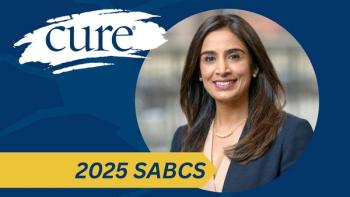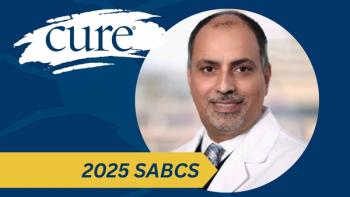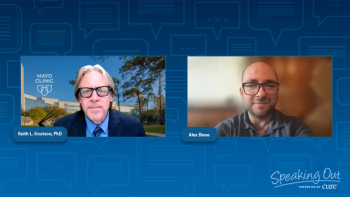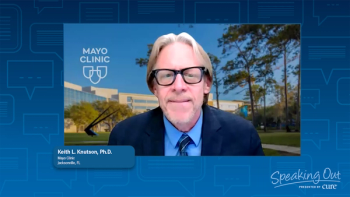
NCCN Guidelines: Making Shared Decisions in Metastatic TNBC
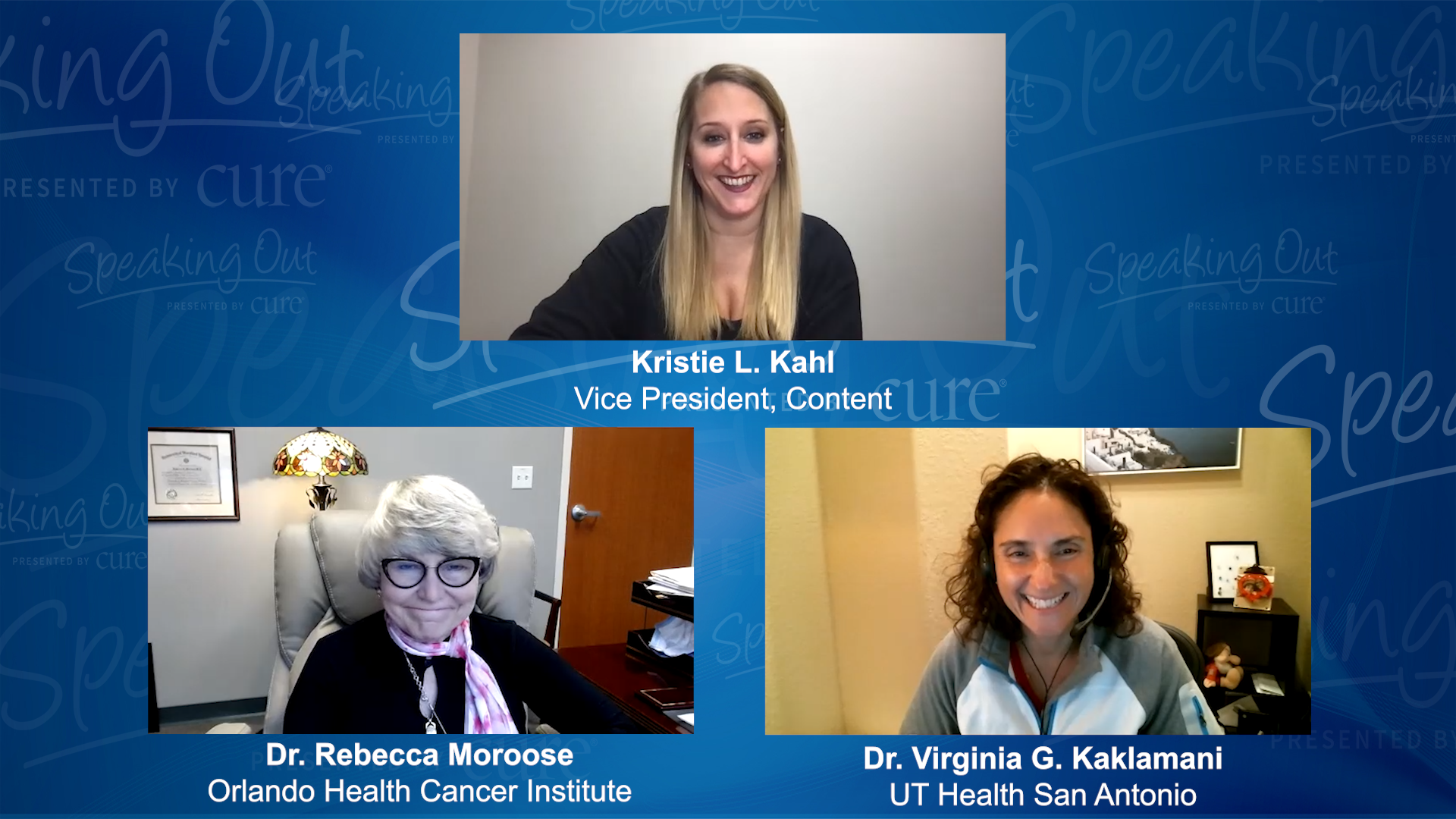
As part of its CURE Speaking Out video series, CURE spoke with Dr. Rebecca Moroose, from Orlando Health Cancer Institute, and Dr. Virginia G. Kaklamani, from UT Health San Antonio, about shared-decision making with the NCCN Guidelines on metastatic triple-negative breast cancer.
Kristie L. Kahl: Dr. Moroose, why is it key that (deciding on a treatment) should really be a shared decision-making process?
Dr. Rebecca Moroose: So, every individual deserves to guide their own destiny and their clinician should understand the patient's goals and desires in terms of what they're looking toward, what they hope to achieve, and it's really critical. We oncologists probably spend more time talking about the side effects of treatment than we do the success of treatment. But it is, you know, a balance. It's definitely a risk-benefit balance. But patients need to understand as much as they can. This whole era of molecular testing of breast cancers, as was mentioned, not all breast cancers are alike. And I think we're just on the verge of understanding more and more potential targeted therapies for metastatic triple-negative breast cancer, and all metastatic cancer.
Kristie L. Kahl: Dr. Kaklamani, how can patients learn more about NCCN guidelines?
Dr. Virginia G. Kaklamani: There are resources. The NCCN guidelines also have a section for patients. But it's not just the NCCN guidelines. ASCO, the American Society of Clinical Oncology, puts up a webpage for patients so they can go and be informed. And I've looked at that website. And it's very nice, and it's very nicely patient oriented.
And then there’s going to be a discussion. Like Dr. Moroose said, a lot of times we focus on what our goals are. Our goals for metastatic breast cancer are to help patients live better and live longer, which is great. But patients may have very specific goals, they may want to feel well for their kid’s graduation, which happens on a specific day, or somebody's getting married, and they need to be out of town to attend that wedding. And a lot of times this interferes with our treatment, and it doesn't have to. We just have to adjust things to make sure that we can get them to what their short-term goal is. But it's very important that we have that discussion with them. But sometimes that gets lost.
Kristie L. Kahl: Dr. Moroose, do you have any information patients can also learn from?
Dr. Rebecca Moroose: I think the sites that Dr. Kaklamani spoke about are excellent. American Cancer Society often also has fairly solid education. Just be aware though, sometimes the scientific guidelines are more quickly emanated than the patient guidelines. So always rely on your oncologist to help you.
The other thing I do want to mention is that not only are treatment guidelines evolving here, but for example, recently, anybody with triple-negative breast cancer should have germline testing for BRCA1 and BRCA1, and other mutations, regardless of the age. The considerations for patients and their families are equally evolving.
Kristie L. Kahl: To bring it all together, do you both have any final thoughts for our metastatic triple-negative breast cancer patients?
Dr. Rebecca Moroose: First of all, my hat's off to all of these brave men and women. It's primarily women who are facing this, who have participated in research trials who have been brave enough to undergo therapy. Having practiced for 35 years as a breast oncologist, it warms my heart to see some successes now that we didn't enjoy in the past. Dr. Kaklamani is a lot younger, so she'll see a lot of this going forward in her career.
But just continue to ask questions. If your oncologist doesn't want you to ask questions, think about whether that's the right oncologist for you, and stay as informed as you can – not about just about your therapy, but about your options.
Dr. Virginia G. Kaklamani: And I think the only thing I would add, and Dr. Moroose already mentioned it previously, is how important clinical trials are. We are where we are today, because brave men and women before us were able to participate in clinical trials to define what the standard of care is. And if we want to improve on that standard of care, we have to do clinical trial research to get to our next better medication, eventually get to the cure, even with metastatic disease. Even as difficult as triple-negative breast cancer is, we will get to the cure, but we will only get to the cure if we are able to participate in clinical trials.

